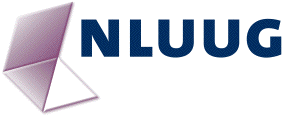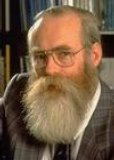
29 june 2007: NLUUG Event Enschede

|
29 june 2007: NLUUG Event Enschede |
Friday June 29, the NLUUG will organise an event with the theme innovation in IT.
Lectures will be held in Dutch or English. Slides available in the closed member area.
Friday June 29 2007, 13:30 - 17:30
Ondernemershuis Enschede
Twentezaal
Hengelosestraat 585
7521 AG Enschede

How to get there: by car
by public transportation:
Take the train to Hengelo. Trains leave from Schiphol airport with 30 minutes
in between; their end station is Enschede, but it's a little easier to get off
in Hengelo. In Hengelo, go to the bus station and take bus 9. Be sure to check
the end point of the line, which should be Enschede. You will be charged a
2 zone (3 strips) fair. Ask the driver to signal you when he gets at the
Assinkhof
bus stop. After getting off the bus, continue in the same direction for about
1 minute, that is, in the direction of Enschede. You will find the location
at your right hand.
FREE (as in free beer).
The slides of the presentations can be found below.
Welcome with coffee/tea
The Linux cowloop device driver
Hendrik-Jan Thomassen (AT Computing BV)
Abstract
 The cowloop device driver for Linux systems allows other block-devices to be used in a
read-write fashion without writing to that block-device itself.
Write operations are intercepted, and diverted to a separate regular
file, called the "cowfile". This cowfile can be chosen freely on any
writable filesystem (disk, USB stick...). The underlying block device
is effectively shielded from actual write accesses.
The cowloop device driver for Linux systems allows other block-devices to be used in a
read-write fashion without writing to that block-device itself.
Write operations are intercepted, and diverted to a separate regular
file, called the "cowfile". This cowfile can be chosen freely on any
writable filesystem (disk, USB stick...). The underlying block device
is effectively shielded from actual write accesses.
The cowloop driver exports 16 block-dev names, called the "cow-devices", to the user. An administrative command connects one of these cow-devices to a pair of (1) block device to be shielded, plus (2) cowfile to store the diverted writes. Then the cow-device special file name can be used in a mount-command (rw), which opens access to the file system tree on the underlying block-device without ever writing to it.
After a subsequent unmount, the underlying block device is guaranteed to be unmodified. All "modified" sector-images are stored in the separate cowfile. If the same pair of block device to be shielded plus cowfile is reused later, the file system tree on the underlying device reappears in its "as last modified" form.
Similar to the well known loopback-mounting technique, cowloop also supports the use of a file-system-in-a-file instead of a block device to be shielded.
More info on http://www.ATConsultancy.nl/cowloop
Speaker
Hendrik-Jan Thomassen is the director of AT Computing and AT Consultancy in Nijmegen. Both companies specialise in UNIX/Linux related activities exclusively. Hendrik-Jan has worked with UNIX for over thirty years. He is one of the founding members and a honorary member of the NLUUG.Slides
OASE and the results
Carlos Silva dos Santos (Syntens)
Abstract
 From 2002 to 1 April 2006, Syntens implemented the OASE (Open Aanbod Software Expertise / Open Supply of Software Expertise) programme with a subsidy from the Ministry of Economic Affairs (1.362 million euro). OASE was launched as a pilot project within the Syntens project structure for the multi-annual programme Nederland Gaat Digitaal (The Netherlands Goes Digital - NGD). NGD focused on technology-following SMEs.
From 2002 to 1 April 2006, Syntens implemented the OASE (Open Aanbod Software Expertise / Open Supply of Software Expertise) programme with a subsidy from the Ministry of Economic Affairs (1.362 million euro). OASE was launched as a pilot project within the Syntens project structure for the multi-annual programme Nederland Gaat Digitaal (The Netherlands Goes Digital - NGD). NGD focused on technology-following SMEs.
Speaker
Carlos Silva dos Santos, is innovation advisor for SME's at Syntens and is project manager of the OASE project. His passion is advising in the use of ICT as a stratigic tool for SME's.
Slides
Coffee/tea break
During the break there will be PGP key-signing and CAcert certification.
More information and instructions can be found here (Dutch only).
Automatic test case generation, execution and evaluation with TorX
Machiel van der Bijl (Axini)
Abstract
 In this presentation we give an overview of the possibilities of the
open source test tool TorX. TorX makes it possible to automatically
generate, execute and evaluate test cases based on a specification of
the system under test (this also known as model based testing). We end
the presentation with a short tool demo.
In this presentation we give an overview of the possibilities of the
open source test tool TorX. TorX makes it possible to automatically
generate, execute and evaluate test cases based on a specification of
the system under test (this also known as model based testing). We end
the presentation with a short tool demo.
Speaker
Machiel van der Bijl is specialized in automatic testing. He is the owner of Axini, a company specialized in testing of complex systems. Before he started Axini he has been working as a software consultant in several areas, for example for banks/insurance companies and embeddes systems manufactureres. Right now he is finalizing his PhD research on model based testing.
Slides
Efficient XML in a database using MonetDB/XQuery
dr.ir. Maurice van Keulen (University of Twente)
Abstract
 With growing volumes of XML data, it is a logical thought to store the
XML data in a database. Support for XML in existing relational databases
is, however, rather clumsy and inefficient, and special XML databases
are limited and immature. This presentation explains a new way of storing
XML in an ordinary relational database that enables efficient querying
and updating. MonetDB/XQuery is an open source database based on this
technique which additionally has some interesting extensions for
multimedia applications.
With growing volumes of XML data, it is a logical thought to store the
XML data in a database. Support for XML in existing relational databases
is, however, rather clumsy and inefficient, and special XML databases
are limited and immature. This presentation explains a new way of storing
XML in an ordinary relational database that enables efficient querying
and updating. MonetDB/XQuery is an open source database based on this
technique which additionally has some interesting extensions for
multimedia applications.
Speaker
Maurice van Keulen is assistant professor at the University of Twente. His research interests include topics like XML databases, schema and data integration, uncertainty in data, data quality, data heterogeneity, semi-structured data, (multimedia) information retrieval, and DBMS extensibility.
Slides
GPL V2/V3: Business Compatible?
mr. drs. Walter van Holst (Mitopics)
Abstract
 This presentation focuses on the various business models in IT and how open
source licenses, especially the GPL, influence the viability of such
business models. Special emphasis will be put on the likely changes that
will stem from the next version of the GPL, version 3 and their impact on
open source business models.
This presentation focuses on the various business models in IT and how open
source licenses, especially the GPL, influence the viability of such
business models. Special emphasis will be put on the likely changes that
will stem from the next version of the GPL, version 3 and their impact on
open source business models.
Speaker
Walter van Holst is a IT legal consultant with Mitopics, a consulting firm specialising in the relationship between vendors and customers of IT. He has a background in both law and business and before joining Mitopics he was an IT consultant in the telecommunications industry for over four years.Slides will appear on the Mitopics website
Drinks